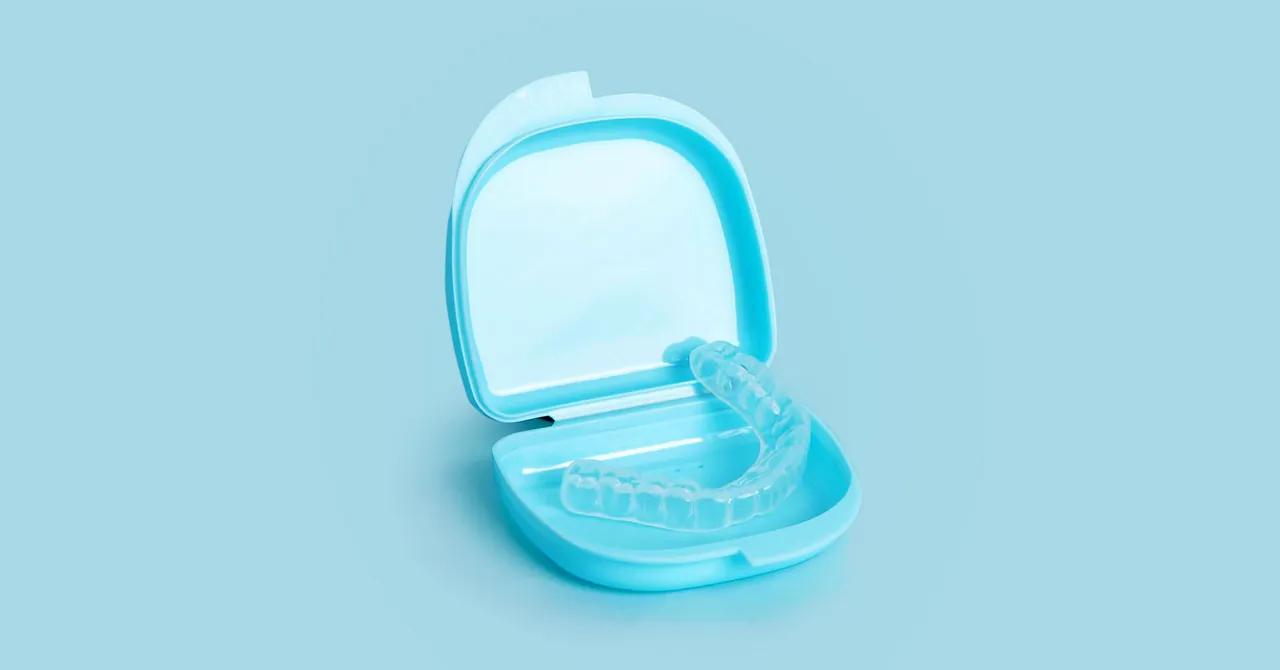Dental night guards, also known as mouthguards or night aligners, are used in patients who clench or grind their teeth to prevent damage to the teeth due to friction and pressure. In Lotus Dental Turkey, we apply special night guards to our patients at the last stage of many tooth-supported or implant-supported treatments in which multiple restorations are applied or the vertical dimension is increased.
Tooth grinding (bruxism) is often triggered by stress or anxiety disorders. Disruption of sleep depth, some antidepressants (selective serotonin reuptake inhibitors), smoking, alcohol or drug use can also cause involuntary clenching or grinding.
Teeth grinding is a behavior that we can do during sleep as well as during the day, when we are performing activities that we focus on a lot. We can list the symptoms that vary according to the severity of teeth grinding as follows:
- Pain in the face, head, neck, temple, ear and/or shoulder
- Jaw pain due to development of temporomandibular joint disorder
- Disorders such as multiple cracks, pitting and flattening of teeth
- Increased sensitivity in teeth due to abrasion-cracks-fractures
- Tooth loss
- Breaking/falling of dental fillings
The primary aim in the treatment of teeth grinding should be to eliminate the factors. In cases where the factors cannot be removed or can only be reduced, treatments to prevent their effects and damages can also be applied. If your dentist detects that you are clenching or grinding your teeth during your examination, he or she may recommend the use of a night guard.
While hard joint aligners may be preferred in cases accompanied by temporomandibular joint problems caused by teeth grinding, soft night aligners can also be produced in cases without joint findings. Night aligners can be applied to the lower jaw or upper jaw according to the decision of the dentist.
How dental night guards are produced?
A 3D model is created by taking measurements from the upper or lower teeth. On this model, transparent and soft ready-made aligners are individually produced to be compatible with the teeth and gums.
Although they are called night guard or night aligners, thanks to their transparent structure, they can also be used during the day if needed. In such a case, they should be removed during eating and drinking.
They can be cleaned with liquid soap or non-abrasive toothpaste and a soft toothbrush and stored in a special container.
How do night guards prevent teeth grinding?
Night guards do not completely prevent teeth grinding, but they can be used to reduce its effect. By spreading the pressure generated during clenching and grinding over the entire mouth, they prevent excessive forces on the teeth and prevent the teeth from rubbing against each other. Thus, while the chewing muscles relax a little, the tension forces on the jaw joint can be reduced.
Can night guards completely cure teeth clenching?
Since the etiology of clenching and grinding is stress, psychological relaxation and stress management should be prioritized in its elimination. Night aligners are made to prevent clenching from causing damage to the teeth and surrounding tissues.
In cases where night aligners are ineffective or at the same time with night aligners, botulinum toxin application to the chewing muscles is one of the preferred treatments for controlling bruxism.
If teeth grinding is not prevented and necessary treatments are not applied, it can lead to serious joint problems. As with any treatment, early diagnosis and early intervention are very important in teeth grinding.
How often should night guards be renewed?
Holes on the night guard are an indication that they are worn out. Worn-out aligners should be replaced with new ones without wasting time. For hygiene reasons, it would be better to replace discolored and contaminated plaques.
See Also:




